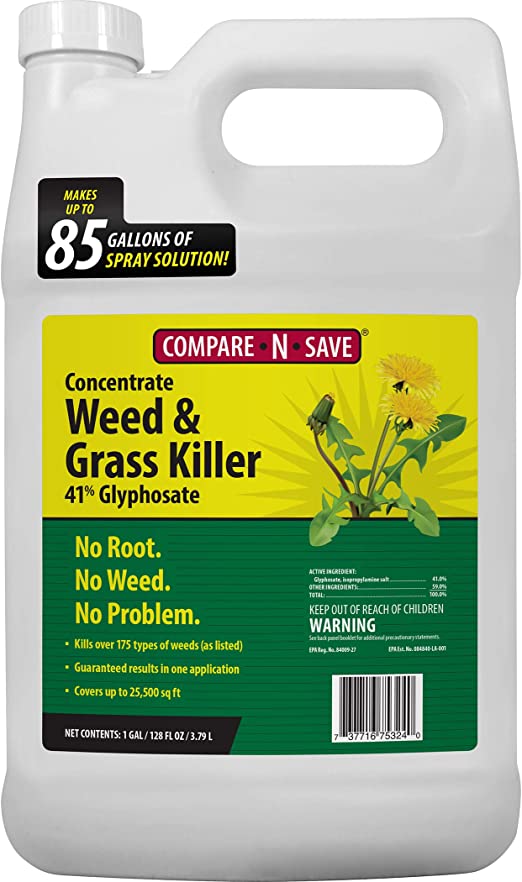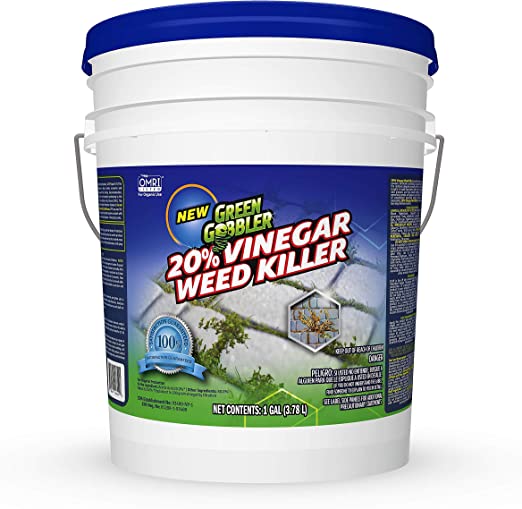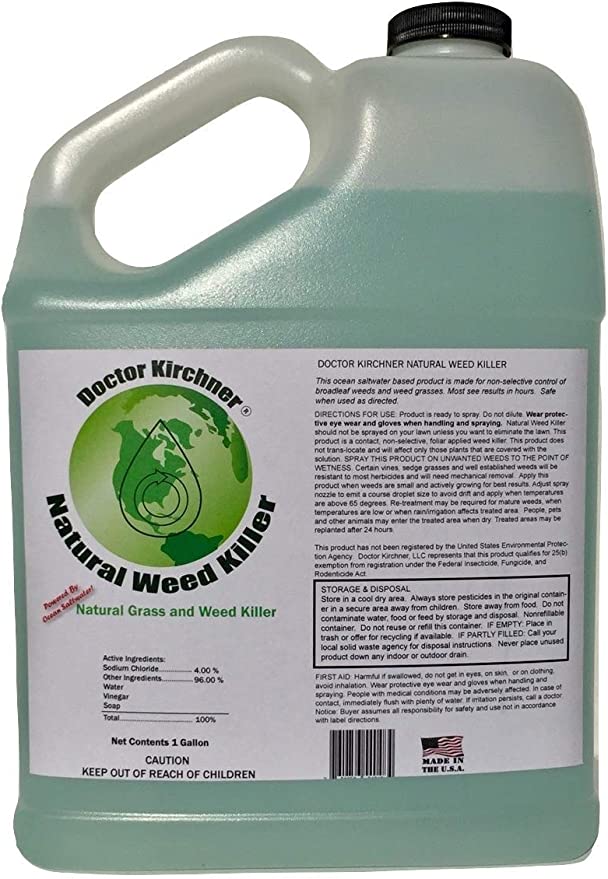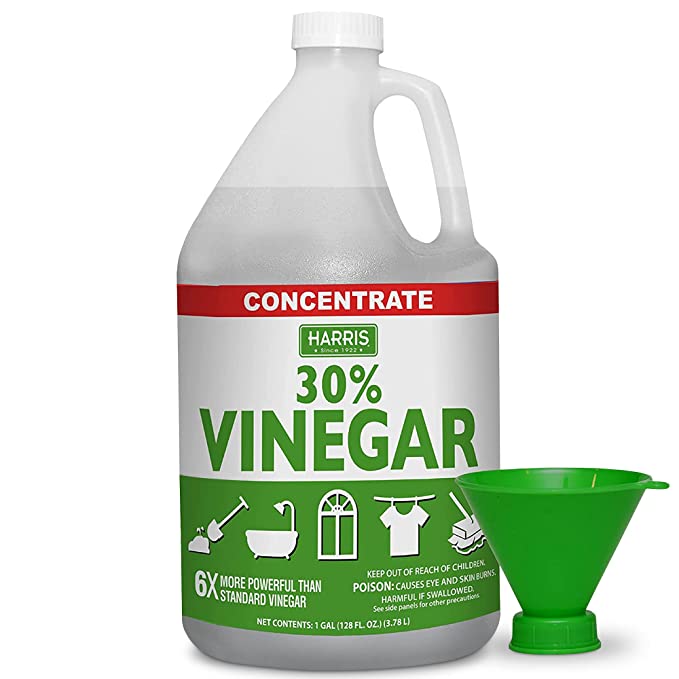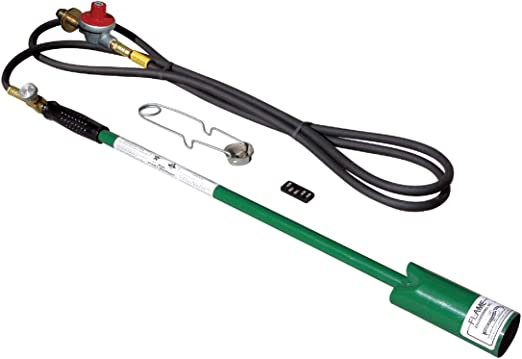No matter which flowers you have, weeds can ruin them from an aesthetic and growth perspective. The common way of pulling weeds is tedious and most of us don’t have the time to constantly pull out weeds. With the best weed killer for flower beds, it’s easier to control the weeds and their growth.
Keeping your flower beds in peak condition will take time and you might find that weeds continuously reappear after rainy days. The weed killer will hold the weeds to a minimum while spreading as water is poured onto the flower beds. In this article, we discuss the best weed killer for flower beds, helping you make the best decision.
Buying Guide
Buying weed killers with confidence takes a bit of research. You need to understand a few things about these products to ensure you get the most value for your money. The following guide will make it easier to find the right weed killer. We have done some in-depth research to find all of the essential features.
Weed Killer Basics
Before we look at the products or the important features, there are a few things that are important to understand. Some of these terms are common language among botanists, but for a normal person, it is daunting. Here are a few basics that everyone needs to understand about weed killers:
Pre-emergent
Pre-emergent weed killers are exactly what the name says. They target the seeds of weeds before they weeds get to grow. The pre-emergent weed killer will keep weeds at bay if you spot them or preferably, when and where you expect them. It is not advised to use these weed killers for weeds that have already grown.
Post-emergent
The most readily available weed killers are post-emergent. These weed killers target weeds that are already growing. The post-emergent weed killers are non-selective in most cases. You will need to be careful when you apply it to avoid killing some of the flowers or plants in your flowerbeds.
Broad-Leaf And Broad-Spectrum
Broad-leaf weeds are intrusive and while they make flowers when they are not controlled, these flowers are by no means aesthetically appealing. There are a variety of different broad-leaf weeds and they are considered the most common weeds.
The broad-spectrum herbicide is effective at controlling broad-leaf weeds and they excel when it comes to grass-type weeds. However, it might not be selective, which means that it could target the flowers in your bed.
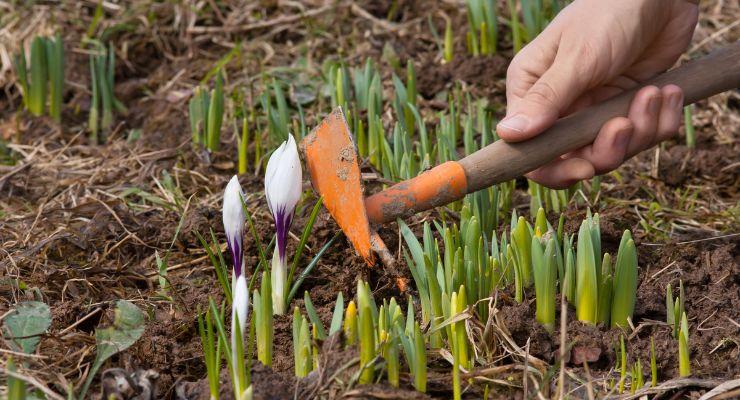
Selective
When you look for herbicides, you need to find out if the product is selective or non-selective. A non-selective herbicide targets every plant it touches, whereas a selective weed killer only targets the weeds it is made for. The different ingredients are important to look at, but most brands will have an indication of which weeds are targeted.
Glyphosate WHO Warning
Glyphosate is a dangerous and toxic ingredient found in many herbicides. It is a broad-spectrum herbicide that commonly targets broad-leaf weeds. The U.S. Environmental Protection Agency (EPA) has noted that it will no longer approve the use of Glyphosate in weed killers. The main speculation is that the ingredient might cause cancer when fumes are ingested or if it comes into contact with the skin.
Alternative Methods to Kill Weeds
If you don’t want to invest in a weed killer, there are alternative methods that you can consider to keep weeds from growing and spare plants. These methods are by no means as effective as the best weedkiller product, but it serves as ‘quick fixes’ that will alleviate the issues of weeds for the time being:
- Homemade Methods: There are numerous household products you can use to get rid of weeds or to keep them at bay. Things like apple cider vinegar and dish soap are great for weed control. However, they are nonselective and could kill other flowers in the flower bed.
- Organic And Eco-Friendly Methods: You don’t always need to destroy the environment or use the most powerful product. Common household ingredients like salt and vinegar can make the perfect mild weed killer. Fire might cause additional damage but it can root out tough weeds.
- Weed barriers: Using weed barriers may prevent or at least delay the spread of weeds through raising a physical barrier
These are not the only alternative methods to keep weeds from growing. The main goal always needs to be safe and kill weeds in the most natural way possible.
Most Important Things To Consider Before Buying The Best Weed Killer For Flower Beds
With the basic names and terms understood, you can start looking at the finer detail. The label is a good place to start; with a few important elements, we identified to be important. The following things are good to look at and they will ensure that you find the product you need:
Types of Common Weeds in Flower Beds
There are different weeds that you will encounter in your flowerbed. While most product options will target all of them, you might need a selective product to give you more protection for your flowers. The following weeds are the most common that you will find and they are commonly rooted out with the basic herbicides we will review:
- Dandelions: Dandelions are the most common of them all. They reproduce from fluffy seeds, but the large root network allows them to spring up rapidly. If not controlled, these weeds can spread to take over your flower bed.
- Field Bindweed: If you have field bindweed, you will notice how hard it is to get rid of it. With roots that can go as deep as 14 feet, they are persistent in the spring and summer months.
- Crabgrass: Another common weed is crabgrass, which you will find every so often in the summer months. The best way to get rid of crabgrass is to target it before it springs up.
- Lambsquarters: Lambsquarter is a weed you need to keep your eye on. It springs up fast in your flower bed and sucks the moisture from other plants in the surrounding area. If unattended, it can do a lot of damage. It is one of the killer weeds.
- Pigweed: Pigweed might not be as common, but it is important to identify and get rid of it before it springs up. You are better off dealing with them beforehand.
There are many more weeds that you will find in your flowerbeds if you don’t spend time attending it. The weeds mentioned above are the most common. The product selection on the following list are made to target these weeds specifically.
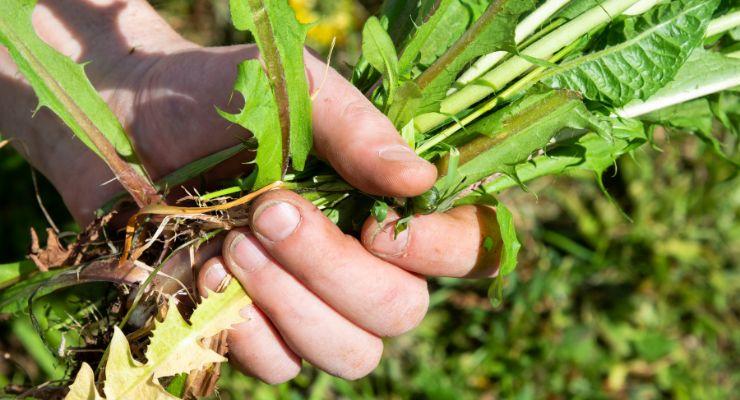
Garden/Flower Bed Type
The type of plants or flowers you have in your garden is important. If they are edible plants or grown for consumption, you might need to consider an organic herbicide. For selective herbicides, one needs to look at the ingredients of the product. Make sure that the weed killer you choose does not pose a risk to the ground or the flowers you have growing.
Application Method
There are various ways to approach the application process. Unfortunately, you can’t simply tip the bottle into your garden. Generally, it needs to be mixed and added to a spray bottle. However, there are granulated herbicides as well. These work best when you have wet conditions and you want to add it to specific spots.
Safety
The last aspect to look at is safety. The herbicides should not pose any risk to you. As we have mentioned, ingredients like Glyphosate are not recommended by the World Health Organization (WHO). The other dangerous ingredients should also be researched if you are unsure. Nonselective weed killers are the most dangerous.
Review Of The 5 Best Weed Killers For Flower Beds
With the features and the important considerations out of the way, you can now see the best weed killers for flower beds. The following herbicides have garnered a solid reputation and they are reputable to get the job done. If your garden needs some weeding, you don’t need to look any further than the following products:
Compare-N-Save Concentrate Grass and Weed Killer
The first product we have is the Compare-N-Save Concentrate Grass and Weed Killer with Glyphosate as the active ingredient. The glyphosate is absorbed through the leaves, moving down and killing the roots. The process will save your soil, but it is nonselective and could target the flowers or plants you want to grow.
These chemical weed killers’ concentrations can be varied depending on the weed growth. A single 1-gallon bottle will give you 85 gallons of diluted weed killer that covers up to 25,000 square feet. It is best to use it around flower beds and or spot treatment, but not in the middle of the flowerbeds.
Pros:
- Does not absorb into the soil
- Removes all broad-leaf weeds
- 1 bottle covers 25,000 square feet
- Rainproof
Cons:
- Nonselective
Green Gobbler Vinegar Weed & Grass Killer
If you have edible vegetation in your flower beds, you might want to consider something organic. The Green Gobbler Vinegar Weed & Grass Killer is a vinegar solution. Acetic acid is the active ingredient, making it safe for humans when used correctly. The PH level will be changed in the soil, killing the weeds more effectively.
It targets the most common weeds we find in most gardens. The product needs to be diluted and once it has been applied, results can be seen in as little as 24 hours. Due to the vinegar solution, it is not affected by the weather. However, it can kill other plants if the PH level and soil composition are changed for non-resistant plants.
Pros:
- Organic vinegar solution
- Works in 24-hours
- Does not harm a vegetable garden
Cons:
- Doesn’t kill all weed roots
Doctor Kirchner Natural Weed & Grass Killer
The Doctor Kirchner Natural Weed & Grass Killer is another organic weed killer, made from completely natural ingredients. The main active ingredients are sea salt, vinegar, and common household soap. It does not contain Glyphosate or any other chemicals that tend to target the hormones of the plants. Much like the previous herbicide, the main use is the change in the PH level in the soil.
You simply need to dilute the herbicide following the instruction and it is ready to apply. The safety precautions are impressive, making this natural weed killer ideal for kids and pets that roam around your lawn. While it is good for flower gardens, it is a non-selective weed killer. The main use is along pathways and getting rid of intrusive grass types.
Pros:
- Organic ingredients – Natural weed killers
- Bioavailable safe to use
- Easy application
- Results noticeably the same day
Cons:
- Sprayer needs to be bought separately
Harris 30% Pure Vinegar Extra Strength Herbicide
Vinegar products are the staple of natural and organic herbicides. However, the Harris 30% Pure Vinegar Extra Strength Herbicide has a 30% level of vinegar added, which means that it is 6 times stronger than many of the competitors. The unit is easy to dilute with two parts of water and it does not have an odor that will bug you.
What makes the product so special is that you have multiple uses for it. It can be used for laundry and or as a cleaning agent for windows or your patio. The vinegar needs to be diluted, which means you will get at least 3 gallons of spray from one bottle. The additional sprayer is also a great accessory to help with the application process.
Pros:
- Multiple uses
- Includes the sprayer
- Pet and kid-friendly
- Safe to use
- Organic compounds
Cons:
- The sprayer is not the best quality
Red Dragon VT 2-23 C Weed Dragon 100,000-BTU Propane Vapor Torch Kit
If you want to actively remove the weeds on your own, the Red Dragon VT 2-23 C Weed Dragon 100,000-BTU Propane Vapor Torch Kit is a different approach to weeding than we are used to. It slides over the weeds and is connected to a propane gas tank. Once activated, it will incinerate the weed, making it impossible to grow back.
It does effectively get rid of weeds when used correctly. However, the fumes are harmful to the environment and they might leave an odor. While it might seem dangerous, it is very easy to use and has been CSA certified for international use. Unfortunately, you will need to buy a propane tank and refill it before use.
Pros:
- Easy to operate
- Does not kill other plants
- CSA certified
Cons:
- High initial costs(propane tank not included)
Wrap-Up
A weed killer is a very useful tool to have in your arsenal. With most weeds appearing in the late spring or early summer, you must start to look for a herbicide as soon as possible. Gardens might bloom in the summer, but any botanist will tell you that preparation is key, and beautiful summer gardens are created in the latter part of winter. Killing weeds should not be as time-consuming with the best weed killers.

